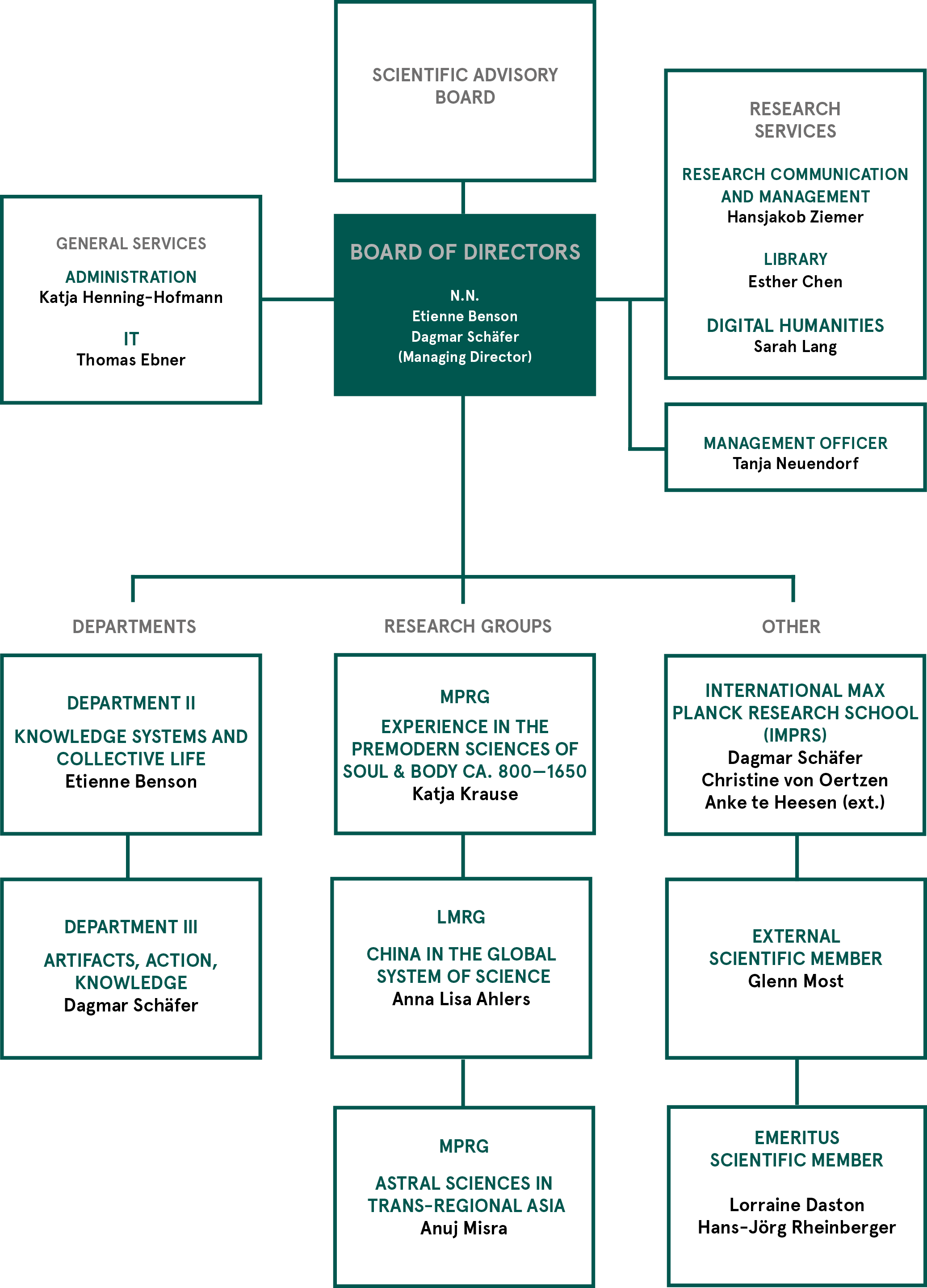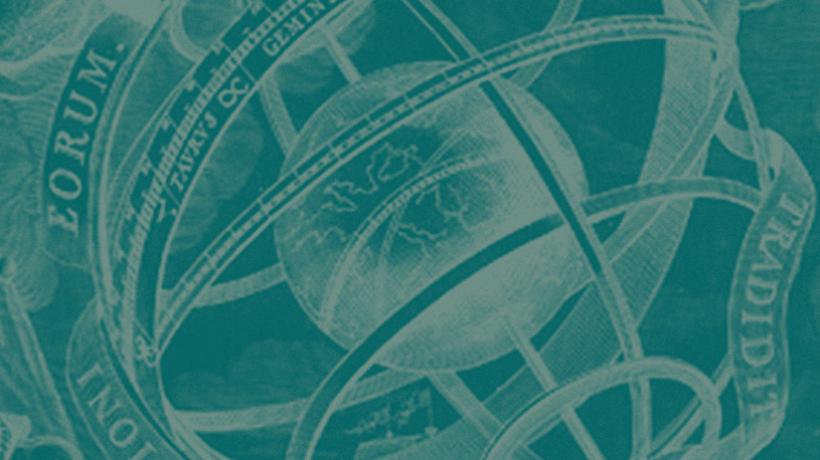Institute Research Structure
The departments of the MPIWG approach questions of historical epistemology in different ways, and are organized neither along disciplinary lines nor according to historical periods. Their work encompasses numerous scientific disciplines and large historical timescales.
Department II, "Knowledge Systems and Collective Life," has been directed by Etienne Benson since 2022.
Department III, "Artifacts, Action, Knowledge," has been directed by Dagmar Schäfer since 2013.

The previous Department III, directed from 1997 to 2014 by Hans-Jörg Rheinberger, studied experimental systems and spaces of knowledge with a special emphasis on the history of the modern life sciences and the epistemology of experiments.
Previously Department II, directed 1995–2019 by Lorraine Daston, investigated the history of the ideals and practices of rationality, including fundamental practices such as objectivity, observation, and data.
The previous Department I, directed from 1994–2023 by Jürgen Renn, focused on structural changes in systems of knowledge and investigated long-term processes of change in scientific knowledge.
The Institute hosts several smaller, variously funded independent research groups, which are led by Katja Krause and Anuj Misra, as well as a Lise Meitner Research Group led by Anna L. Ahlers. Their topics range from premodern sciences of soul and body to astral sciences in trans-regional Asia and China in the global system of science. They are funded by various institutions, such as the Max Planck Society, the Volkswagen-Stiftung, and the German Research Fund (DFG), and are independent in their research programs.
An International Max Planck Research School, “Knowledge and Its Resources: Historical Reciprocities” (IMPRS-KIR), opened in 2022. The graduate school is a joint project of the MPIWG with Berlin’s Freie Universität, Humboldt-Universität, and Technische Universität as part of the Berlin Center for the History of Knowledge.
Alexander Blum completed his Research Group in 2025; Lara Keuck completed her Research Group in 2024; Elaine Leong completed her Research Group in 2019; Sabine Arnaud and Vincenzo De Risi completed their Research Groups in 2016; and Sven Dupré and Veronika Lipphardt completed their Research Groups in 2015.
Since 2011, Glenn W. Most (Scuola Normale, Pisa, Italy; University of Chicago, USA) has served as the elected External Member of the MPIWG.
The MPIWG is also advised and evaluated every two to three years by the Institute’s Advisory Board, which consists of leading international scholars in the history of science. The research units’ activities are supported by the Administration (headed by Katja Henning-Hofmann), by the Library (headed by Esther Chen), by the Research Communication and Management Team (headed by Hansjakob Ziemer), and by the Digital Humanities Team (Sarah Lang) and IT Support (Thomas Ebner).

